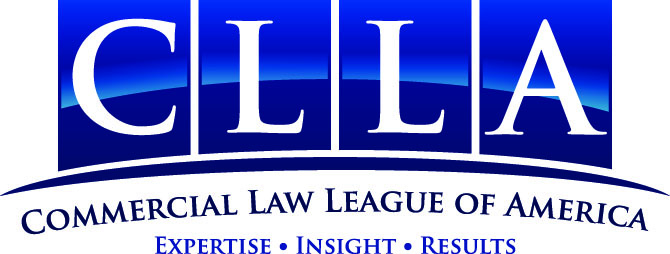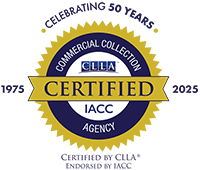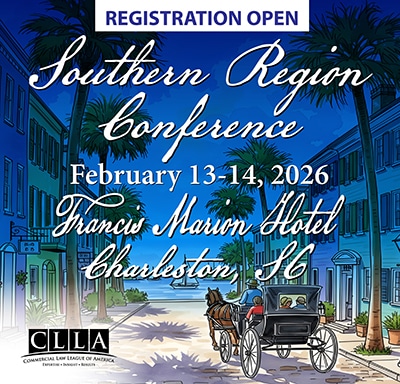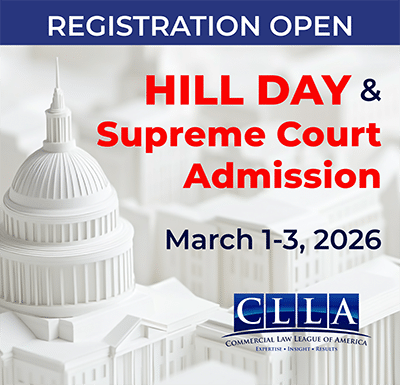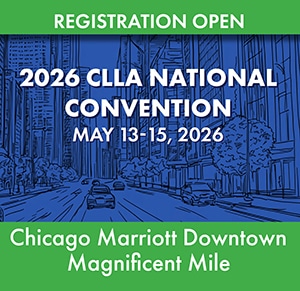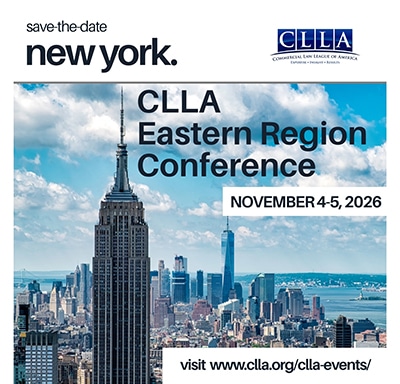Why Commercial Collection Agencies Should Become CLLA Certified
Find A CLLA Attorney
Find A CLLA Certified Agency

Find A CLLA Agency
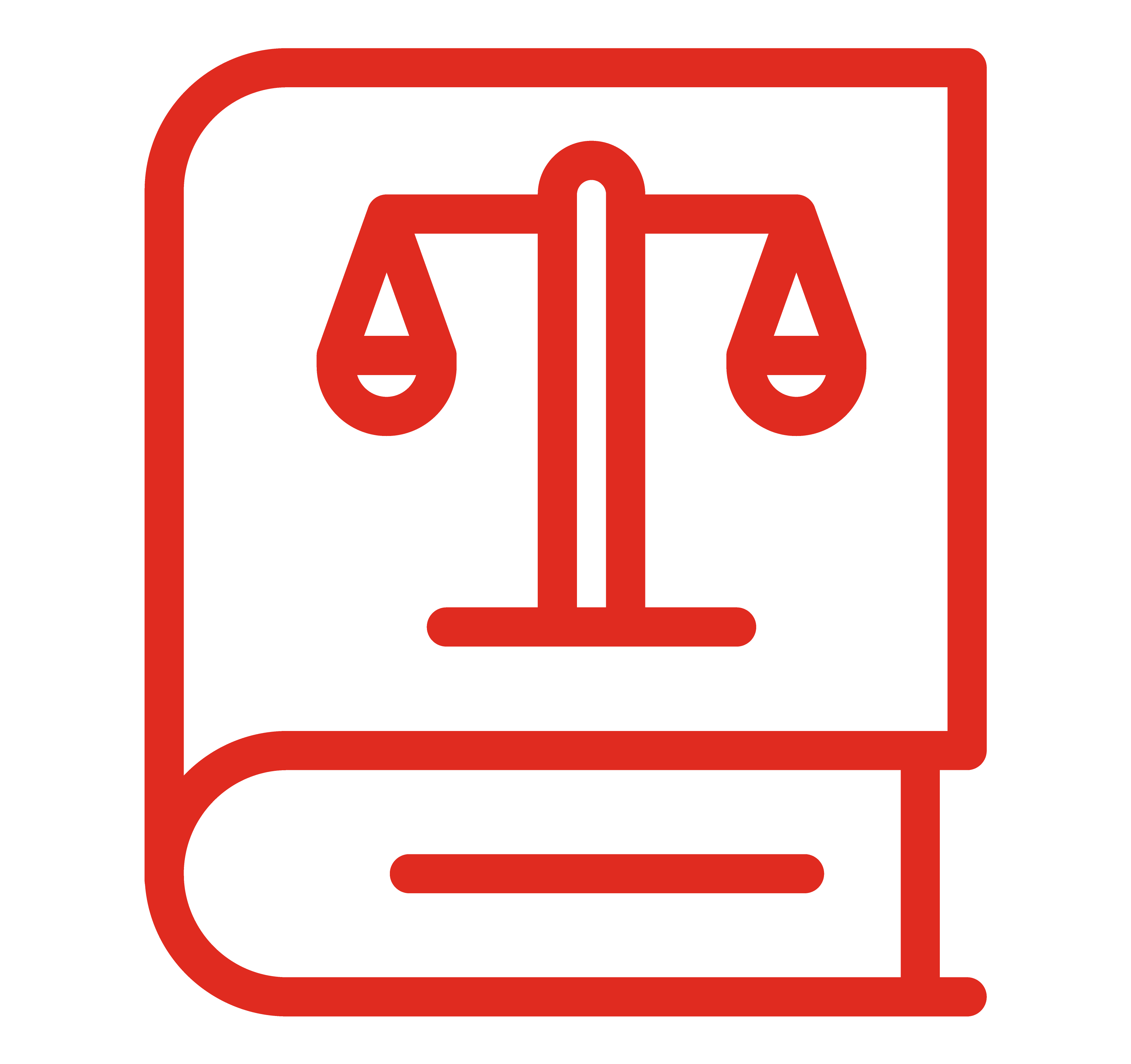
Find A CLLA Professional
Why Commercial
Collection Agencies Should
Become
CLLA Certified
Find A CLLA Attorney
Find A CLLA Certified Agency

Find A CLLA Agency

Find A CLLA Professional
Standards & Requirements
Commercial Collection Agency Certification Program
CLLA Certified Collection Agencies have been independently audited by a third-party to confirm compliance with all relevant federal and state laws and regulations governing the collection of debts, and in all jurisdictional registration and licensing requirements. They also maintain documented policies and procedures consistent with all relevant federal and state laws and regulations governing the collection of commercial debts.
Revised: December 16, 2021
Goal of the Program
The goal of the CLLA Commercial Collection Agency Certification Program is to demonstrate that certified agencies adhere to relevant regulations in the collection of commercial debt, that the Agency is using Generally Accepted Accounting Principles (GAAP) or other accepted accounting principles and adheres to standards to protect and safeguard their clients’ funds.
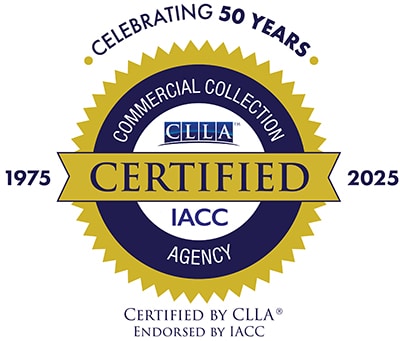

Standards & Requirements
Commercial Collection Agency Certification Program
CLLA Certified Collection Agencies have been independently audited by a third-party to confirm compliance with all relevant federal and state laws and regulations governing the collection of debts, and in all jurisdictional registration and licensing requirements. They also maintain documented policies and procedures consistent with all relevant federal and state laws and regulations governing the collection of commercial debts.
Revised: December 16, 2021
Goal of the Program
The goal of the CLLA Commercial Collection Agency Certification Program is to demonstrate that certified agencies adhere to relevant regulations in the collection of commercial debt, that the Agency is using Generally Accepted Accounting Principles (GAAP) or other accepted accounting principles and adheres to standards to protect and safeguard their clients’ funds.
A. General Requirements
1. Agency must fully and accurately complete the CLLA Application for Certification.
The Certification Program and/or Application require:
- A Certification that the Agency’s business is commercial-related.
- A Certification that the Agency has been in the business of collecting commercial claims for at least four (4) years, as of the date of application.
- A Certification that the Agency is in compliance with all relevant federal and state laws and regulations governing the collection of debts, including but not limited to the Bureau of Consumer Financial Protection, Fair Debt Collection Practices Act, Privacy Act of 1984, the Health Insurance Portability and Accountability Act of 1996, the Gramm-Leach-Bliley Act of 1999, Fair Credit Reporting Act, Telephone Consumer Protection Act (TCPA).
- A Certification that the Agency is in compliance with all relevant and applicable state and jurisdictional registration and licensing requirements.
- A Certification that the Agency maintains documented policies and procedures consistent with all relevant federal and state laws and regulations governing the collection of commercial debts.
- Disclosure of all claims against Agency bonds as well as complaints and litigation filed against the Agency.
- Disclosure of all current and previous ownership for the last 7 years.
- That all owners, partners, officers, and directors answer personal disclosure questions.
- Membership in both the Commercial Law League of America (CLLA) and the International Association of Commercial Collectors (IACC). The Agency must be a member of IACC and have at least one designated officer, manager or representative of the Agency maintain a membership in the CLLA, referred to as “A Key Person”.
- Agency must authorize CLLA, or its independent, third-party agent, to conduct an in-person, on-site visit, interview of the Key Member, and review of Agency’s main location of business. Additional onsite visits may also be required if there is a material change in the Agency’s ownership or operations.
- The Agency and its controlling owners must authorize the CLLA, or its independent, third party agent, to obtain a criminal background report on all shareholders of the company.
- Agency must authorize the CLLA, or its independent, third-party agent, to obtain a trade report on the Agency.
- Agency must fully and accurately complete and submit, on an annual basis, the CLLA Application Form for Certification, and furnish to the CLLA’s independent, third party CPA Auditing Firm, the Independent Review of Trust Activities Questionnaire which indicates that funds in the trust bank account(s) are equal to or in excess of the trust liability at the end of each quarter for the past year, along with the form and financial statements indicating same. Said independent, third-party CPA Auditing Firm shall maintain all such financial information in strict confidence and shall not share any financial information with members of the Certification Committee or the staffs of CLLA or IACC.
- Agency must meet annual education (competency) requirements. The criteria for educational requirements are stated in Paragraph C below.
- United States Agencies must obtain a surety bond to protect client funds based on gross contingency fees for the previous year:
Gross Contingency Fees: Bonds:
$0 to $1,000,000Gross Contingency Fees: Bonds:
$1,000,000 to $5,000,000Gross Contingency Fees: Bonds:
Over $5,000,000An international member must document and certify that they comply with the Client protection provisions (e.g., a bond, an insurance policy, a trust account, etc.) that are customary in their country.
- Agency must agree to allow CLLA to publish, or make available to the public, the Agency’s name, mailing address, and website address as well as its Key Person’s name and contact information.
- Agency and its owners, partners, officers, managers, and directors, must demonstrate good character and as such must conform to the Certification Program Standards and Requirements. Further, Agency must acknowledge that violations may result in disciplinary action being taken by the Certification Committee, including but not limited to termination from the Certification Program.
- Only Certified Agencies whose Certification is active shall be authorized to display the Certification Program logo in any promotional materials, including but not limited to websites (logo must be linked to www.clla.org), emails, written pamphlets, RFP, RFI, or collections proposals. Making reference to holding an active Certification, displaying or utilizing the Certification Program logo shall immediately cease if after Certification the Agency: (a) withdraws its Certification; (b) has its Certification suspended during such period; or (c) has been terminated from the Certification Program.
B. Certification Fees
There are three kinds of fees involved with Certification by the CLLA: The Initial Certification Application Fee, the Annual Certification Fee, and the On-Site Visit Fee.
- INITIAL APPLICATION FEE: The initial Application Fee is $1,250.00 plus the Annual Certification Fee based on the agency size (see below). This initial application fee shall be used solely to cover the costs of CLLA, and/or its independent, third-party agent reviewing the application, obtaining individual credit reports, individual background checks, an Agency trade report, on-site visit, and internal administrative costs. Applicant must complete the Application Form and provide the list of documents identified therein as well as supply the Trust Activities Questionnaire. Agency applications received will be reviewed and approvals or denials shall be rendered on a quarterly basis.
- ANNUAL CERTIFICATION FEE: All certifications begin on January 1 and expire on December 31. The Annual Certification Fee will be pro-rated for new applicants. Annual Fees, less actual expenses incurred, as set forth in the CLLA / IACC Agreement shall be used for the sole purpose of marketing and promoting the Certification Program.
Agency Size:
1-20 Employees- Initial Application Fee: $1,250.00 (New Applicants)
- Onsite Visit Fee (Every 5 years): $750.00
Agency Size:
21 to 49 Employees- Initial Application Fee: $1,250.00 (New Applicants)
- Onsite Visit Fee (Every 5 years): $750.00
Agency Size:
Over 50 Employees- Initial Application Fee: $1,250.00 (New Applicants)
- Onsite Visit Fee (Every 5 years): $750.00
The CLLA, on or about November 15th, shall mail an invoice to all agencies for the Annual Certification Fee. Prior to the mailing of the invoice, the Application Form, Trust Activities Questionnaire, and list of documents required will be sent. Agencies shall provide a response to all documents and pay the applicable Annual Certification Fee on or before December 1st. In the event everything is not received by that date, the Strategic Alliance Advisory Committee shall be charged with following up with agencies. If everything is not received by January 1st, no certificate will be issued to any Agency unless and until all invoices have been paid in full, and all documents are provided.
C. Competency Requirements
Agency personnel must obtain annual continuing education credits.
- Up to (3) three members of senior management, chief compliance officer, chief operations officer, director of operations, forwarding manager, or collections manager, including the Key Person, must attend a cumulative (10) ten hours of Continuing Education Units (CEU) per calendar year. These (10) ten hours may be comprised by: at least (5) five credit hours obtained at a CLLA meeting or CLLA qualified event, and up to (5) five credit hours at an IACC meeting.
- Webinars from CLLA or IACC may count towards the continuing education requirement.
D. Certification Committee
The Certification Committee will consist of the following four members: The Executive Vice-President of the CLLA, a CLLA staff employee whose primary responsibility will be administration of the Certification Program, the President-Elect of the CLLA, the CPA Auditing Firm, and the Executive Director of the IACC who shall be a non-voting member. No member of the Certification Committee will be an owner, officer or employee of any collection agency.
The Certification Committee will:
- Have the authority to outsource to an independent, third-party CPA Auditing Firm whose primary purpose is to review each application and associated required documents and perform agreed-upon procedures in accordance with attestation standards established by the American Institute of Certified Public Accountants.
- Review each application submitted to the CLLA for consideration of Certification and retain the application in strict confidence.
- Maintain records concerning the status of each Agency’s compliance with Certification requirements, including but not limited to Continuing Education Units, payment of fees and timely submission of required documents.
- Have the authority to suspend the Certification of any Agency that has not complied with one or more of the Certification requirements and issue notices of non-compliance which set time limits for an Agency to cure any event of non-compliance and has the authority to refer to the CLLA Board of Governors.
- Approve an application for Certification upon receiving a report from the independent, third-party auditor listing the procedures performed and their findings.
- Reject an application for Certification and advise the Agency of the grounds for rejection.
- Have the authority to condition approval of an application for Certification or renewal of Certification of an Agency by requesting the Agency to, within a designated period of time, correct, implement or cease an act or activity that does not conform to the requirements of Certification.
- Have the authority to change the Certification Program Standards and Requirements contained in this Document or any other related documents based on the effectiveness of the Certification Program, changes in laws and regulations, and the evolution of best practices.
- Determine which education programs are eligible for Continuing Education Units (CEU).
- Strive to maintain a Certification Program based on uniform principles that are formed by statutes, regulations, ethical standards, interactions with regulatory agencies, and best practices.
